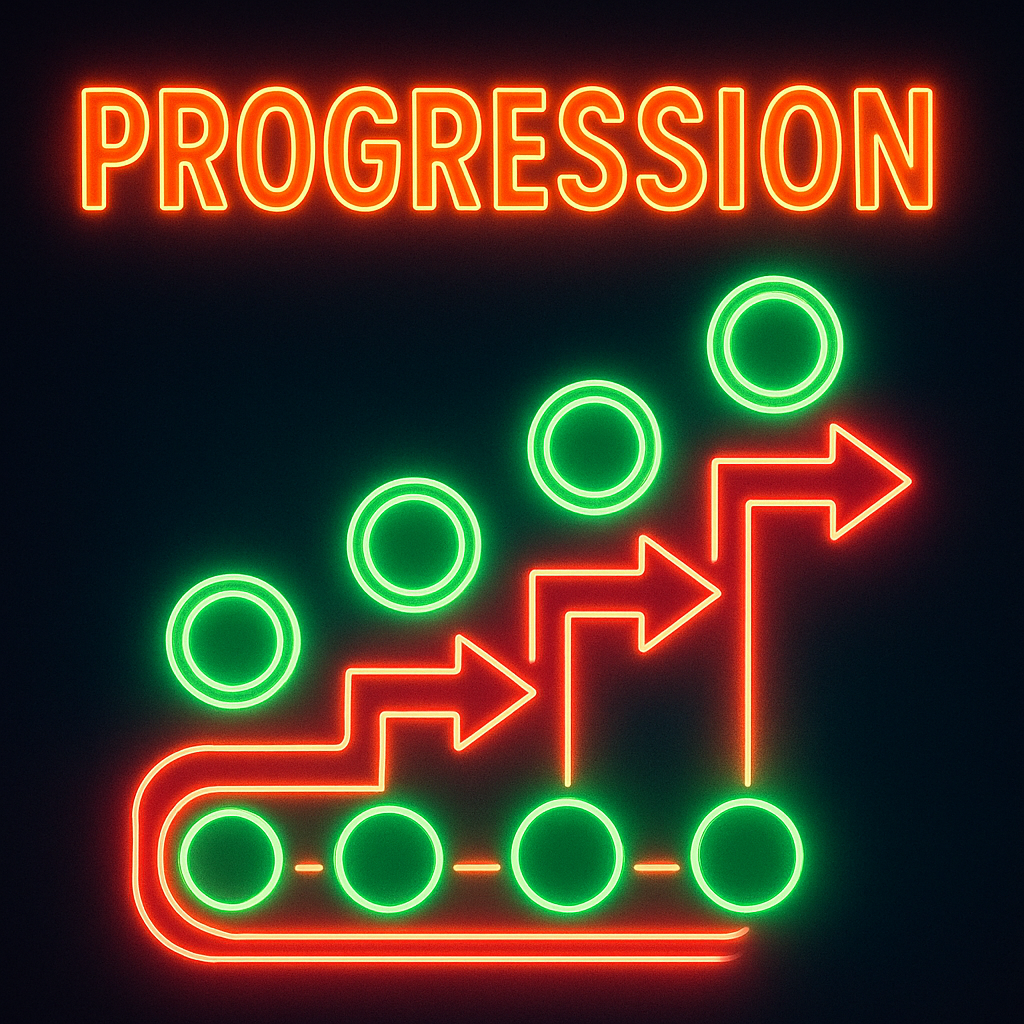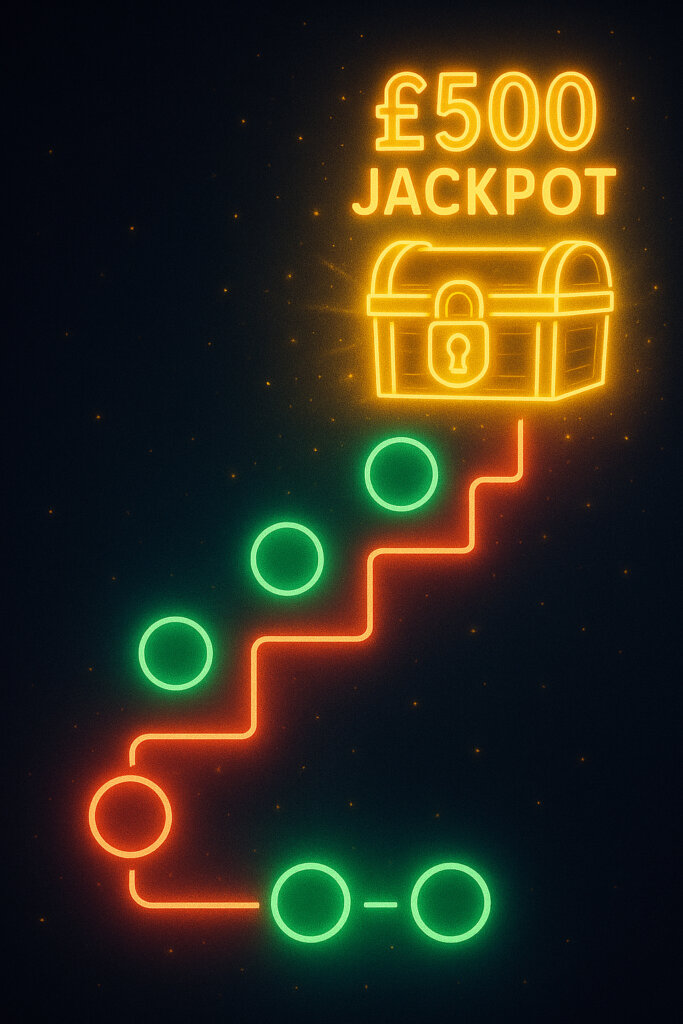
Slot Psychology: Progression and Unlockable Features: Borrowing from Video Games
- Borrowed from Gaming, modern slots mimic video game progression systems.
- Illusion of Advancement, Meters, trails, and tokens make effort feel rewarded.
- The Core Reality, it still all comes down to random outcomes.
Slot Psychology: Progression and Unlockable Features: Borrowing from Video Games
If you’ve played a UK £500 jackpot slot in an arcade, you might have noticed something that feels less like a traditional fruit machine and more like a video game. Instead of just spinning reels and waiting for a win, modern slot machines often include progression systems and unlockable features — and they’re designed to keep you playing for longer.
Progression features create the sense that you’re building toward something over time. For example:
-
Feature trails: Every spin might move you a space or two along a board, edging you closer to a bigger and better win.
-
Collect systems: Some machines ask you to collect symbols, tokens, or items across multiple spins, with a reward when you fill the meter.
-
Level-ups: Certain games unlock new bonus rounds or extra features after you’ve played for a while, giving you the feeling of advancement.
On the surface, these mechanics seem fair and logical. You put the time in, you make progress, and eventually you unlock the reward. But here’s the important point: the underlying outcomes are still driven by the random number generator (RNG). That meter filling up, or that trail creeping closer to the top, doesn’t guarantee that your next spin will be a winner. It just creates the illusion of progress.
This idea connects strongly with what we covered earlier as perceived persistence. When you see yourself moving along a trail or collecting tokens, it feels like your past play matters and that sticking with the machine will pay off. In reality, the chance of hitting the jackpot or bonus remains the same as it always was.

Slot designers borrow heavily from video game psychology here. Think about role-playing games (RPGs) where you grind levels to unlock new skills, or mobile games where you collect gems to open special features. That sense of gradual progress keeps players engaged — and slot machines apply the same principle, but with the added hook of real money on the line.
For UK players, these systems are especially common on pub fruit machines and B3 slots with £500 jackpots. You might see a trail that promises the “Super Board” or “Cashpot” when you reach the end. Sometimes you’ll miss out by just one step, creating that all-important near-miss effect. Other times you’ll collect items that seem close to completion, nudging you to play “just a bit longer” to finish the set.
The result is an experience that feels interactive and goal-driven, rather than purely random. You’re no longer just pressing a button — you’re working toward something, unlocking features, and making progress. At least, that’s how it feels.
Of course, the maths never changes. Every spin is still independent, and the machine doesn’t remember how much effort you’ve put in. But the design makes it look and feel like persistence matters, and that’s exactly why these systems are so effective.
Next time you find yourself chasing the end of a trail or filling up a bonus meter, keep this in mind: you’re not levelling up in a game, you’re experiencing a designed illusion of progression. It’s a powerful tool borrowed from video gaming — and one of the cleverest ways UK slots keep players coming back for more.